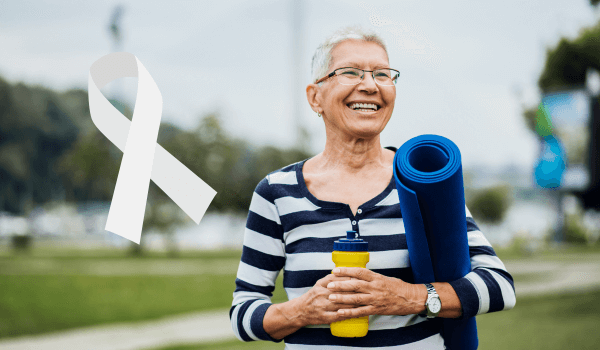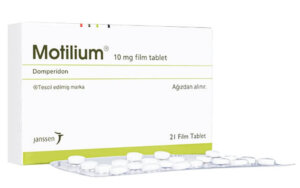 Many people seek ways to manage bouts of IBS (Irritable Bowel Syndrome) with lifestyle changes and exercise in lieu of taking medications. Living with irritable bowel syndrome can be challenging. Still, implementing some reasonably simple strategies makes coping effectively and improving quality of life possible. We can only present a short guide to a few of the recommended strategies. Remember to consult a healthcare professional to receive personalized advice and guidance based on your needs and medical history. With patience, self-care, and support, managing IBS and leading a fulfilling life is possible.
IBS doesn’t have a very focused cause-and-effect relationship, and often something that worked for one person doesn’t work for another and can even fail to provide relief for the same person the next time the syndrome hits. We went into more depth in a similar article that explained more about what can cause IBS and what the different types and symptoms often are. This article presents Q&As that address how IBS can best be handled without running to the medicine chest. However, where it’s relevant, some references will be made to what can help in concert with non-pharmaceutical therapy.
Many people seek ways to manage bouts of IBS (Irritable Bowel Syndrome) with lifestyle changes and exercise in lieu of taking medications. Living with irritable bowel syndrome can be challenging. Still, implementing some reasonably simple strategies makes coping effectively and improving quality of life possible. We can only present a short guide to a few of the recommended strategies. Remember to consult a healthcare professional to receive personalized advice and guidance based on your needs and medical history. With patience, self-care, and support, managing IBS and leading a fulfilling life is possible.
IBS doesn’t have a very focused cause-and-effect relationship, and often something that worked for one person doesn’t work for another and can even fail to provide relief for the same person the next time the syndrome hits. We went into more depth in a similar article that explained more about what can cause IBS and what the different types and symptoms often are. This article presents Q&As that address how IBS can best be handled without running to the medicine chest. However, where it’s relevant, some references will be made to what can help in concert with non-pharmaceutical therapy.
Q&A
How can I cope and live with irritable bowel syndrome?
Living with irritable bowel syndrome (IBS) can be challenging, but several strategies and lifestyle changes can help you cope effectively. While consulting with a healthcare professional for personalized advice is essential, here are some general tips to help you manage and live better with IBS.- Identify and manage trigger foods such as fatty or deep-fried foods, dairy products, caffeine, alcohol, spicy foods, and some artificial sweeteners. Keep a food diary to help track and identify patterns between your symptoms and the foods you consume.
- Eat a healthy and balanced diet that supports overall digestive health. While adequate amounts of fiber-rich foods such as fruits, vegetables and whole grains can help regulate bowel movements, beware in case you are sensitive to the types of insoluble fiber found in wheat bran or some vegetables like legumes and beans.
- Engaging in stress management is key. Stress and anxiety can significantly impact IBS symptoms, so practicing stress management techniques such as deep breathing exercises, mindfulness meditation, yoga, or engaging in hobbies that you find relaxing into your daily routine is an excellent way to reduce stress levels and promote overall well-being.
- Staying hydrated by drinking adequate water is essential for maintaining blood viscosity and supporting optimal digestion. Hydration can help soften the stool and prevent constipation, a characteristic of IBS-C. Aim to drink at least eight cups (64 fluid ounces or two liters) of plain cool water daily.
- Engage in regular physical activity, which has numerous benefits for individuals with IBS, as we explain further in response to the following query. Aim for at least thirty minutes of moderate-intensity exercise, such as brisk walking, swimming, or cycling, on most days of the week.
How does exercise and going outside improve gut health?
Regular exercise and outdoor time can positively affect gut health, especially for individuals with irritable bowel syndrome who want to manage IBS without medications. While the exact mechanisms are not fully understood, several factors contribute to the beneficial effects of exercise and outdoor activities on the gut. Here are some ways in which exercise and spending time outside can improve gut health:- Exercise increases the contractions of the intestinal muscles, a process known as gut motility. Improved gut motility can aid in efficient food movement through the digestive tract, reducing the likelihood of symptoms such as bloating and abdominal discomfort.
- Exercise that is structured to stimulate the muscles in the wall of the abdomen, as well as those in the intestines, helps promote regular bowel movements. A few specific types of exercise that can work directly to help are:
- Aerobic exercise gets your heart rate up and can have a positive impact on bowel regularity. Activities such as brisk walking, jogging, running, cycling, swimming, or dancing can help stimulate the abdominal muscles and increase blood flow to the intestines, facilitating regular bowel movements.
- Yoga combines physical postures, deep breathing, and mindfulness, making it an excellent exercise option for promoting bowel regularity.
- Pilates works to strengthen the core muscles, including the abdominal muscles, which can help improve gut motility and promote regular bowel movements
- Tai Chi is a gentle exercise that combines flowing movements, deep breathing, and meditation. The slow and controlled movements involved in Tai Chi can help stimulate the abdominal muscles and improve gut motility
- Core-strengthening exercises working on the core muscles can improve the function of the abdominal muscles and support healthy bowel movements.
















